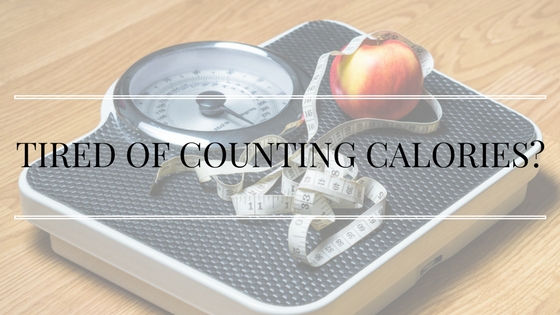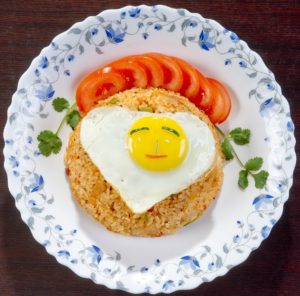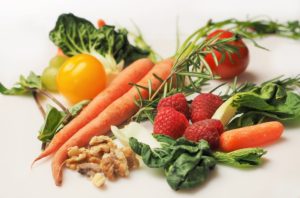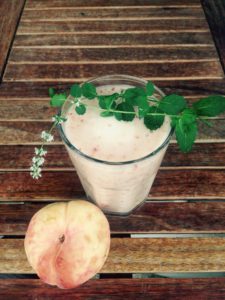
I’m tired of counting calories!!
What about you? Are you one who counts calories every single day?
Whether you count calories or not, you are concerned about what you eat, or you wouldn’t be here – right?
Healthy eating information is everywhere. You open your Facebook, Twitter, Instagram, or Email and you’re on “healthy eating” overload.
Then to top it all off, each one has their perfect solution to eating healthy and ways to lose weight.
So, which advice do you take, or do you just shut it all down and grab a doughnut?
You’re still tired, you can’t lose that stubborn belly fat, your energy is low and all you want is someone to tell you what is the best practice when it comes to eating healthy.
No hype, just some help please.
I know how you feel. This is where I found myself a few years ago and I had all but given up on the whole lose weight and get healthy wagon. I thought I was eating healthy, I was walking multiple miles per day, yet I was seeing absolutely no, and I mean “NO” results.
What was my problem, all I want to do is lose some weight for goodness sake!
I’m counting calories, eating on a salad plate, tossed the sodas, and refused the doughnuts (we have a doughnut store in town that makes the best).
After much distress, I finally learned that all my efforts were never going to allow me to achieve the healthy goals I had set for myself.
In discussing these same issues with many of my clients, I’ve learned that there are many of us in the same situation. We’re assuming we are taking the right steps, yet not seeing any results.
This is what I discovered…
Our focus is often on how much we eat, counting calories all day long – UGH. While this does affect your weight and energy level, it’s certainly not the “holy grail” of health. In fact, I’ve learned I don’t even need to count calories anymore, and, I’ve maintained my weight loss for the past few years.
Don’t get me wrong, limiting calories, carbs or fat can certainly help you lose weight, but that’s simply not the only factor for long-term weight loss and maximum energy for everyone.
You can certainly still continue to count your calories, carbs, and fat but don’t forget to also pay attention to what you eat.
What are you eating?

In the perfect world we would all be eating locally grown organic vegetables and fruits and free range, grass fed, hormone and antibiotic free meats. If you live in area that these options are available, don’t move. For the rest of us, we tend to have a limited supply of either.
No matter where you live or what options you have, we can choose the healthier option.
Ideally, you need a varied diet full of minimally-processed foods (i.e. fewer “packaged” “ready-to-eat” foods). Please, please read your ingredient labels. So many products are designing their labels to make you believe the product is healthy, then you read the ingredients and realize that it is full of toxic chemicals.
I highlighted this very fact on a recent Facebook Live, where I was discussing store purchased bone broth. I couldn’t believe what one “organic free range all natural” bone broth had in it. (Don’t get me started – UGH)
A good rule of thumb is to choose packaged products (if you must) that have no more than 3 to 5 ingredients. This simple concept is paramount for weight loss, energy, and overall health and wellness.
Every day this is what you should aim for:

- A colorful array of fruits and veggies at almost every meal and snack. You need the fiber, antioxidants, vitamins, and minerals.
- Enough protein. Making sure you get all of those essential amino acids (bonus: eating protein can increase your metabolism).
- Healthy fats and oils (never “hydrogenated” ones). There is a reason some fatty acids are called “essential” – you need them as building blocks for your hormones and brain as well as to be able to absorb essential fat-soluble vitamins from your uber-healthy salads. Use extra virgin olive oil and coconut oil, eat your organic egg yolks, and get grass-fed meats when possible. You don’t need to overdo it here. Just make sure you’re getting some high-quality fats.
How you eat and drink

Also pay attention to how you eat and drink.
Studies are definitely showing that this has more of an impact than we previously thought.
Are you rushed, not properly chewing your food, and possibly suffering from gastrointestinal issues? Do you drink your food?
When it comes to how you eat let’s first look at “mindful eating”.
Mindful eating means to take smaller bites, eat slowly, chew thoroughly, and savour every bite. Notice and appreciate the smell, taste and texture. Breathe.
This gives your digestive system the hint to prepare for digestion and to secrete necessary enzymes.
This can also help with weight loss because eating slower often means eating less. Did you know that it takes about 20 minutes for your brain to know that your stomach is full?
Thought so!
We also know that more thoroughly chewed food is easier to digest and it makes it easier to absorb all of those essential nutrients.
Mindful eating takes practice, believe me. We live in a rushed state of being and eating slowly is not part of our daily program. I truly struggle with this practice and I have to be very intentional to eat slowly. Here’s a tip to help you learn to eat slowly, take a bite of food, then lay your fork down and chew slowly. Don’t worry, no one will snatch your food from you while you lazily eat.
And don’t forget about drinking your food.
Yes, smoothies can be healthy and a fabulously easy and tasty way to get in some fruits and veggies (hello leafy greens!), but drinking too much food can contribute to a weight problem and feelings of sluggishness.
Don’t get me wrong, a green smoothie can make an amazingly nutrient-dense meal and is way better than stopping for convenient junk food – just consider a large smoothie to be a full meal not a snack. And don’t gulp it down too fast.
If your smoothies don’t fill you up like a full meal does, try adding in a tablespoon of fiber like ground flax or chia seeds (my favorite).
This is what I’ve learned about weight loss and gaining energy over the past few years. I can truthfully tell you that this works. No gimmicks, no tricks, just easy healthy steps that any of us can take to achieve our health goals.
Balanced health begins when you begin to take daily steps toward achieving your health goals. You can share your health journey with our wonderful members in our members Facebook Group – Healthy Living for Life Begins Today.
Here’s a recipe to help get you started toward balanced health.
Let me know, in our members group, how you enjoyed this smoothie.
Recipe (Smoothie meal): Chia Peach Green Smoothie

Serves 1
Handful spinach
1 Tablespoon chia seeds
1 Banana
1 Chopped Peach
1 Cup unsweetened almond milk
Whisk the chia seeds and milk together and allow to sit for 5 minutes.
Add all ingredients to blender, starting with your greens (you want your greens on the bottom by the blade so they blend better)
Blend, Serve and Enjoy!
Tip: Smoothies are the ultimate recipe for substitutions. Try swapping different greens, fruit or seeds to match your preference.
Bonus: Chia seeds not only have fiber and essential omega-3 fatty acids but they contain all of the essential amino acids from protein.
References:
http://summertomato.com/wisdom-wednesday-salad-dressing-is-your-friend
https://authoritynutrition.com/20-reasons-you-are-not-losing-weight/
http://nutritiondata.self.com/facts/nut-and-seed-products/3061/2
